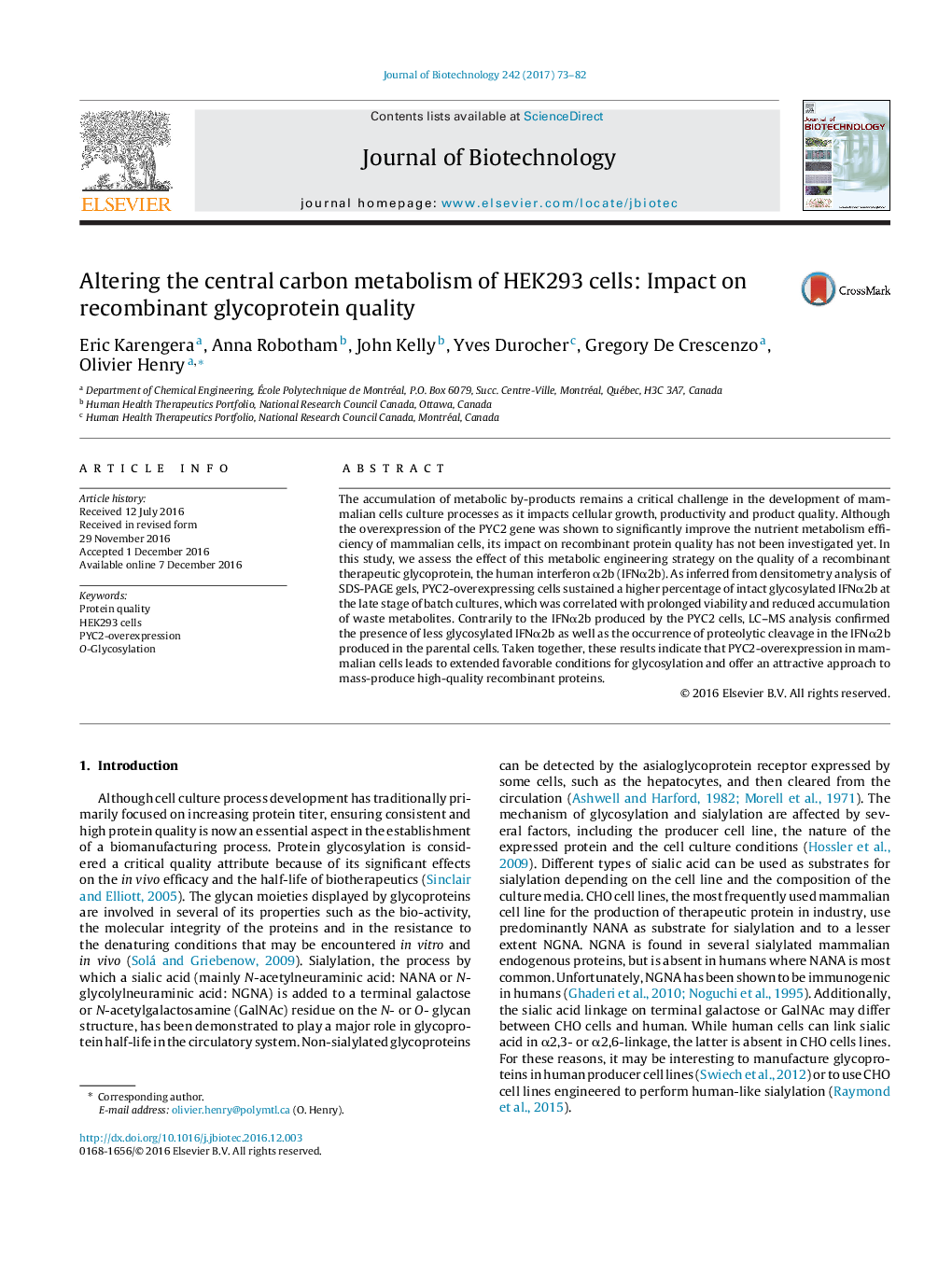| Article ID | Journal | Published Year | Pages | File Type |
|---|---|---|---|---|
| 6452230 | Journal of Biotechnology | 2017 | 10 Pages |
â¢We investigated the impact of glucose metabolism alteration by PYC2-overexpression on protein quality.â¢This modification improves the nutrient metabolism of HEK293 cells leading to reduced metabolic waste production.â¢It promotes extended favorable culture conditions that have a beneficial impact on protein quality.
The accumulation of metabolic by-products remains a critical challenge in the development of mammalian cells culture processes as it impacts cellular growth, productivity and product quality. Although the overexpression of the PYC2 gene was shown to significantly improve the nutrient metabolism efficiency of mammalian cells, its impact on recombinant protein quality has not been investigated yet. In this study, we assess the effect of this metabolic engineering strategy on the quality of a recombinant therapeutic glycoprotein, the human interferon α2b (IFNα2b). As inferred from densitometry analysis of SDS-PAGE gels, PYC2-overexpressing cells sustained a higher percentage of intact glycosylated IFNα2b at the late stage of batch cultures, which was correlated with prolonged viability and reduced accumulation of waste metabolites. Contrarily to the IFNα2b produced by the PYC2 cells, LC-MS analysis confirmed the presence of less glycosylated IFNα2b as well as the occurrence of proteolytic cleavage in the IFNα2b produced in the parental cells. Taken together, these results indicate that PYC2-overexpression in mammalian cells leads to extended favorable conditions for glycosylation and offer an attractive approach to mass-produce high-quality recombinant proteins.
